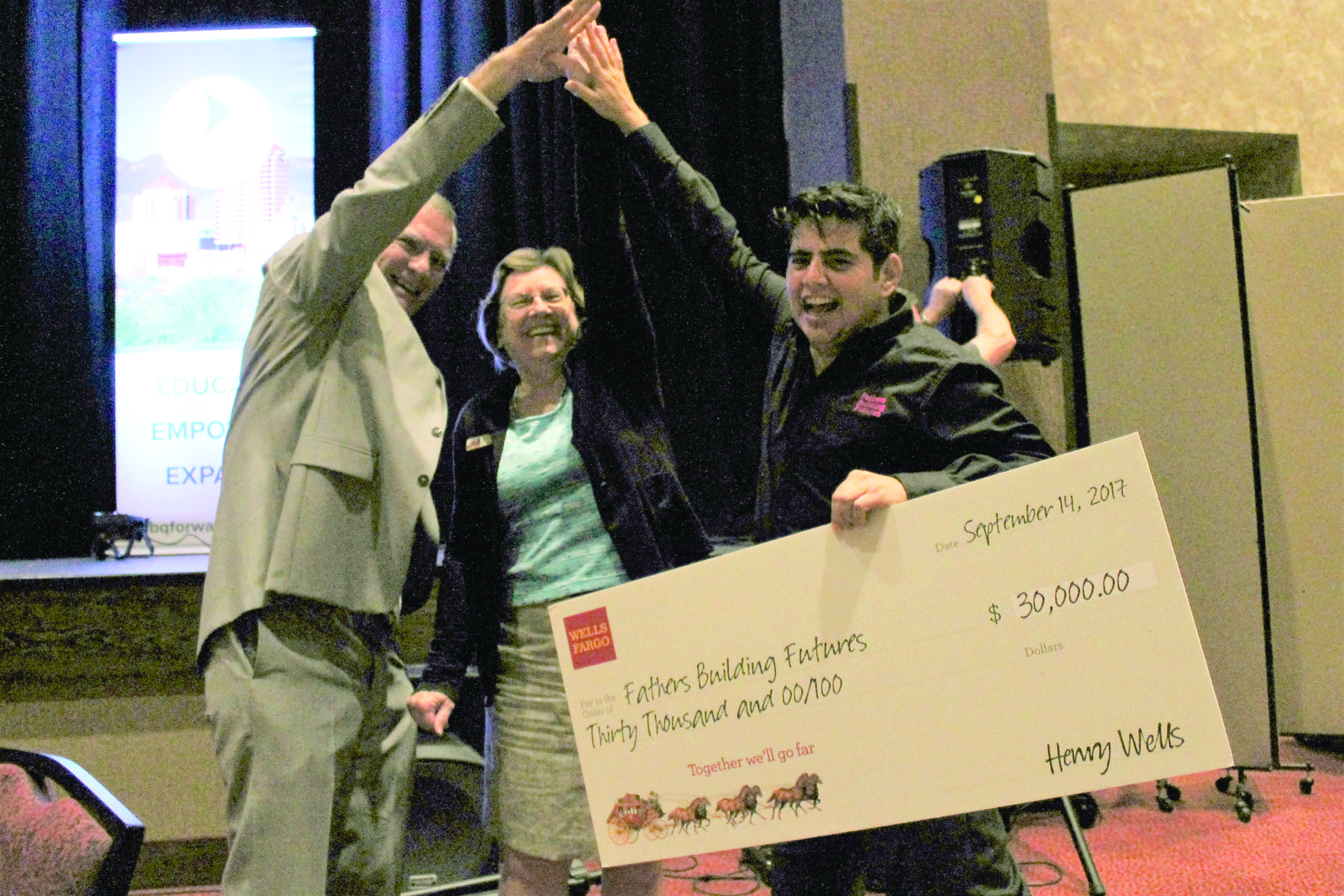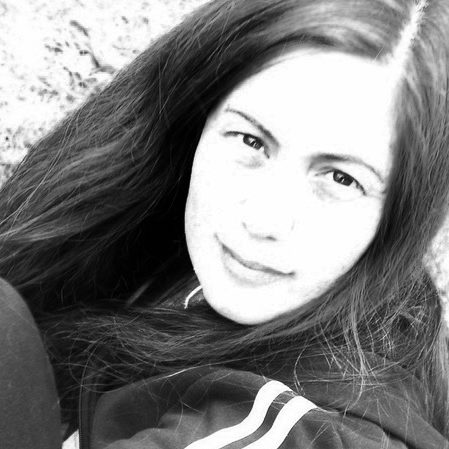
Last September, I was at my annual writing retreat in Albuquerque, N.M., but it was the first year the gathering overlapped with Rosh Hashanah, so I went looking for a synagogue to attend services.
Nahalat Shalom called itself “a spiritual and cultural center for Jewish Renewal,” and the community welcomed us with open arms. Fifteen writers from our group (some Jewish, some not) attended a moving erev Rosh Hashanah service with close to 100 local residents.
The president of the synagogue, Emet Ma’ayan, made his way onstage and welcomed our group in front of the entire congregation with a powerful message of inclusion. “After all,” he noted, “I used to be a woman.”
I also learned that Ma’ayan, 50, founded and runs a nonprofit called Fathers Building Futures, which helps incarcerated men find jobs once they have been released from prison. Among the skills the program teaches is how to build kosher all-wooden caskets, which are then sold to local funeral homes.
After I returned to Los Angeles, Ma’ayan agreed to a telephone interview to discuss his extraordinary Jewish journey and his work with Fathers Building Futures — a fitting tribute for Father’s Day.
Born Dina Berger in New York, Ma’ayan said that “like many lesbians, somewhere along the way I realized it wasn’t just about my sexual orientation, it was a gender issue, too.”
Ma’ayan had been in a long-term relationship with another woman for 14 years before he began transitioning five years ago. He had a stepson with her as well as twins. Their relationship broke up not long after he began transitioning.
Taking a small amount of testosterone, he started to feel better and shortly thereafter had chest reconstruction surgery. He decided to change his name from Dina to Dean “because it was simple.”
However, right before he got to the courthouse, Ma’ayan had a revelation. “Being a Hebrew speaker, I realized ‘Din’ is a heavy name. It means judge. So at the very last minute, I changed it to Emet (truth).”
His last name, Ma’ayan (spring of water), was the name he chose with his former partner, because it was the middle name of his stepson. He legally changed his gender at the DMV when Donald Trump was elected president. “I was really scared,” he said. “I don’t think I would have done it were it not for this political climate, because that wasn’t really my philosophy. My point even now is still not to be male, it’s to just ‘be.’ ”
Part of Ma’ayan’s “being” is rooted in Jewish tradition. Raised in a Conservative Jewish household with three older brothers and Orthodox grandparents, Ma’ayan said “becoming a lesbian wasn’t necessarily breaking any religious doctrine, it was just the typical disappointment of your parents.”
After receiving his bachelor’s degree in sociology and Judaic studies from State University in Albany N.Y., he graduated with a master’s in Jewish communal services from Brandeis University and moved to St. Louis to take his first job at Washington University as the Hillel programming director, a job he remained in for six years.
In 1998, together with his long-term girlfriend, Ma’ayan planned to move to California. “But I saw a movie called ‘Boys on the Side,’ which takes place in New Mexico, and I said, ‘That looks awesome. Can we move out there just for one year?’ ”
That was 20 years ago. Still steeped in a strong, Jewish, halachic tradition, Ma’ayan and his partner were shomeret Shabbat and kashrut, and he had begun wearing tzitzit under his clothes. They joined Nahalat Shalom, even going as far as buying a house that was within walking distance from the shul. But after being rejected when he wanted to use the mikveh, he became disillusioned with Judaism and drifted away from the Jewish community.
He went back to school and studied counseling and fundraising, and obtained a master’s in social work. He then began an internship at PB&J family services. He rattled off sobering information: New Mexico ranks 49th or 50th among states for child well-being, with high infant mortality rates, hunger and incidents of domestic violence. “Our addiction and poverty and incarceration rate is among the highest in the country,” Ma’ayan said. “One out of every 10 children in New Mexico has a parent who is either currently or has been incarcerated.”
As part of his internship at PB&J, his job was to work in the jails with parents. “The men were told when they got out of prison if they did not find work and/or housing within 30 days, they’d go back. We saw so many people go back,” he said.
Undaunted, Ma’ayan sat down and wrote a grant proposal, and in 2011, PB&J was awarded a three-year grant from the Department of Health and Human Services to open up Fathers Building Futures. In 2014, Ma’ayan made Fathers Building Futures his full-time business, creating a board of directors and a sustainable model.
Today, Fathers Building Futures works in four industries, creating temporary job-training programs to help people get back on their feet. The four programs are: auto detailing, “which is fancy car washing,” Ma’ayan said; mobile power washing for fleets of cars; freight and delivery; and the kosher casket building.
“I guess the Jewish community and Judaism has infused itself here [at Fathers Building Futures],” Ma’ayan said. “The curriculum on how to teach fatherhood is really how to be a mensch.”
And it’s almost as though the kosher caskets were inevitable. “When I grew up, my grandfather would take us to the cemetery,” Ma’ayan recalled. “He’d volunteer to clean up.”
“I guess the Jewish community and Judaism has infused itself at Fathers Building Futures. The curriculum on how to teach fatherhood is really how to be a mensch.” — Emet Ma’ayan
And when he was in college, Chabad would send students on Halloween to the cemetery in Albany to do shmira (guard duty), fearing the Jewish tombstones would be attacked. Ma’ayan also spent time volunteering at the chevrah kadishah.
“But the reality is I’d never been around a group of people who have been around so much death [as these fathers have],” he said. “These are young men here. They are always going to funerals. When they were in their gangs, that was a big part of it.”
Fathers Building Futures had a woodshop and Ma’ayan wanted to come up with something the inmates could learn on Day One with very little experience, but also something that wasn’t too simple. The notion of making kosher caskets, without screws or nails, made sense. Ma’ayan invited a local rabbi to talk to the men about death and dying. “It immediately resonated with them, the sacredness of it,” Ma’ayan said.
That path saw Ma’ayan circling back to Nahalat Shalom and a man by the name of Herschel Weiss who has a woodworking studio inside the synagogue. He asked Weiss to come and create a prototype for the casket. Then, they befriended the largest funeral home in town, French Funerals and Cremations, to mentor the fathers.
Initially, French asked the fathers to build both adult and baby caskets, but the men rebelled. “ ‘We’re not making f—ing baby caskets,’ ” Ma’ayan recalled them saying. ‘We’ve buried our own babies!’
“I thought that was so powerful,” Ma’ayan said. “That they could articulate a line when it comes to their own trauma. And that’s what this whole work is about: unpacking your trauma.”























 More news and opinions than at a Shabbat dinner, right in your inbox.
More news and opinions than at a Shabbat dinner, right in your inbox.